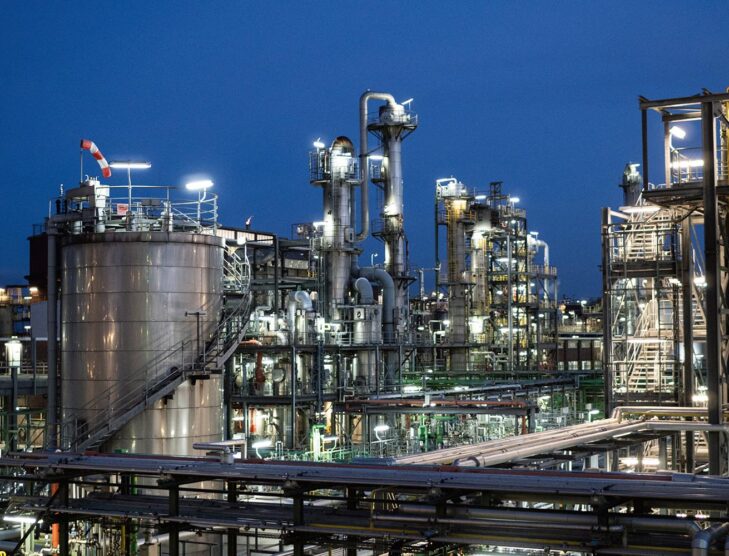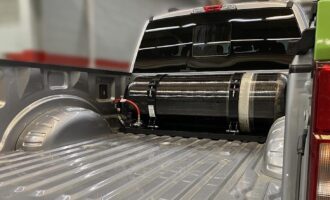
BASF offers carbon-neutral neopentyl glycol and propionic acid
BASF will offer for the first time neopentyl glycol (NPG) and propionic acid (PA) with a cradle-to-gate product carbon footprint (PCF) of zero. Produced at BASF’s Ludwigshafen Verbund site in Germany, the products are available globally as “NPG ZeroPCF” and “PA ZeroPCF.”
BASF is today among the leading producers of neopentyl glycol and propionic acid globally.
Neopentyl glycol is used in powder coatings, especially for the construction and automotive industries as well as for household appliances. Other areas of application for NPG include the manufacture of lubricants, plasticizers and pharmaceuticals: It is used as a building block in the synthesis of, for example, hormones, cardiovascular drugs and painkillers.
Propionic acid, which is fully biodegradable, is used as a mold inhibitor for the preservation of food and feed grains. In this application, PA offers economic and ecological benefits over preservation through drying or storage in airtight silos. Other application areas of PA include the production of crop protection agents, flavors and fragrances, pharmaceuticals, solvents and thermoplastics.
BASF produced the zero product carbon footprint for NPG and PA by using renewable raw materials in its unique Verbund production system via its biomass balance (BMB) approach. BASF additionally used renewable energy to manufacture NPG.
NPG ZeroPCF and PA ZeroPCF are “drop-in” solutions. According to BASF, they are identical in quality and properties to the standard products, allowing customers to use them in their production without the need for adjustments to their existing processes. In this way, customers can simply and efficiently reduce emissions from purchased goods or services (Scope 3) and increase the share of renewable raw materials in the value chain, thus contributing to the shift to a circular economy.
Biomass balance approach using waste-based renewable materials
BASF manufactures NPG ZeroPCF and PA ZeroPCF in its integrated Verbund production system applying its biomass balance approach. For this, BASF feeds renewable raw materials into its Verbund in the very first steps of chemical production and attributes a corresponding share of the renewable raw materials to specific sales products by means of a certified mass balance method. The renewable raw material used is waste-based. BASF’s biomass balanced products are certified according to recognized standards like either REDcert2 or ISCC plus.3 In the production of NPG ZeroPCF, BASF additionally uses renewable energies via Renewable Energy Certificates.
The PCF comprises the total greenhouse gas emissions that occur until the product leaves the BASF factory gate for the customer, from the extraction of resources through manufacturing of precursors to the making of the final chemical product itself. On its journey to achieve net zero CO2 emissions by 2050, BASF is the first large chemical company to make the individual carbon footprints of all its sales products available to its customers.
Certified Carbon Neutral by the Carbon Trust
BASF has achieved Carbon Neutral certification from global climate change consultancy the Carbon Trust for its NPG ZeroPCF and PA ZeroPCF. The Carbon Trust certifies products as Carbon Neutral that are either carbon neutral through temporary natural upstream carbon sinks like plants or through carbon credits purchased by the manufacturing company. BASF achieves the cradle-to-gate product carbon footprint of zero for NPG ZeroPCF and PA ZeroPCF without purchasing carbon credits. The certification will be reviewed on an annual basis.









